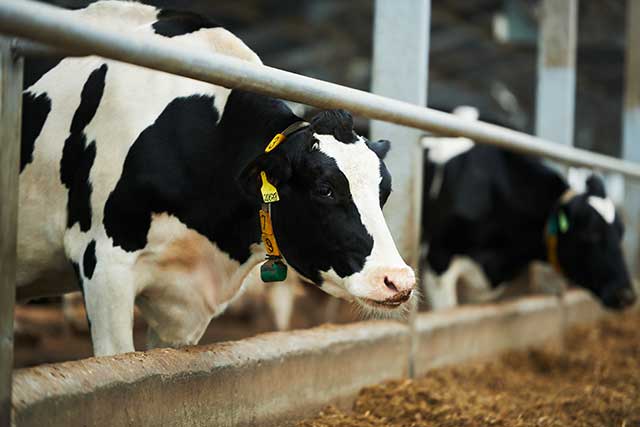Wales is failing to get to grips with bovine TB and a “callous” policy is having a negative impact on farmers’ mental health, the Senedd heard.
Samuel Kurtz said latest statistics show a 2% decline in the number of animals slaughtered in Wales due to TB which “pales” compared with a 21% decline in England.
The Conservatives’ shadow rural affairs minister argued that Wales is the poorest performer in Great Britain when it comes to tackling bovine TB.
He told MSs: “I wonder what they are doing in England that we’re not doing here in Wales that is helping to eradicate TB – [it’s] amazing that the scientific data is ignored when it’s politically inconvenient. This decrease in Wales comes off the back of four years of increases to the number of cattle slaughtered … meaning that figures are decreasing from a high starting point.”
Lesley Griffiths, the rural affairs minister, stressed that long-term trends show fewer affected herds and new incidents in Wales.
Responding to claims that political ideology is being prioritised over scientific evidence, she said the Welsh Government is committed to not culling badgers.
Labour backbencher Joyce Watson said opposition MSs are intent on killing badgers.
Mental health
Mr Kurtz raised concerns about the mental anguish farmers have to go through, particularly with the slaughter of in-calf cows and heifers.
“Not allowing these animals to calve with dignity before being culled places a huge mental strain on our farmers,” said the Carmarthern West and South Pembrokeshire MS.
“I’ve called repeatedly for flexibility, as there is in England, to allow farmers the choice to either cull the infected dam whilst in calf, or to allow them to isolate the dam, allowing it to calve before being culled.
“This would not be a seismic change in policy, but it would be a seismic change to the mental well-being of farmers, who suffer the emotional and physical effects of seeing pregnant cows slaughtered and the calves drowning, suffocating in their mothers’ wombs.”
‘Barbaric’
Jane Dodds, leader of the Lib Dems in Wales, also raised concerns about “barbaric” accounts of in-calf heifers being slaughtered on farms.
Ms Griffiths told the Senedd she is acutely aware of the impact of bovine TB on the health and wellbeing of farmers, saying it is of great concern.
She added that the Welsh Government works with those who specialise in supporting farmers in crisis, such as Farm Community Network, Tir Dewi and the DPJ Foundation.
She said: “I’ve heard and listened to concerns about on-farm slaughter policy, specifically regarding heavily pregnant cows and heifers, which can be incredibly distressing to witness.
“Whilst the slaughter … is sometimes unavoidable, I’ve asked officials to look again at how this situation is managed and the technical advisory group, once established, will consider the issue as a matter of urgency.”
Compensation
Mabon ap Gwynfor, for Plaid Cymru, was disappointed to hear the minister “complaining” about overspends on reimbursement for slaughtered cattle.
He told the chamber: “If effective steps had been taken and implemented sooner to tackle TB, then this wouldn’t be an issue – the money wouldn’t have to be spent.”
Ms Griffiths said she was not complaining about compensation, stressing that it’s right to compensate farmers.
She told the meeting on Tuesday November 14: “I am committed to reimbursing farmers a reasonable sum for cattle slaughtered because of TB.
“However, we are continually overspending against our TB compensation budget, which is unsustainable to the taxpayer, particularly in the current economic climate.
“The TB payments question is complex, and we want to explore options through further engagement with industry.”
In March, the Welsh Government published a refreshed delivery plan setting out its approach to TB eradication over the next five years.

